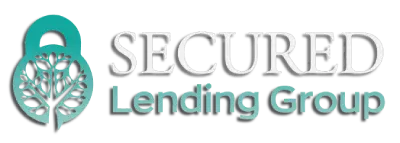HELOC – Home Equity Line of Credit
A Home Equity Line of Credit (HELOC) is a revolving credit line secured by the equity in your home. It works similarly to a credit card: you can borrow up to a certain limit, pay it back, and borrow again as needed. A HELOC allows homeowners to access the value of their home for various purposes, such as home improvements, debt consolidation, education, or emergency expenses.
How a HELOC Works:
- Credit Limit:
- The lender will offer a credit limit based on a percentage of your home’s appraised value, minus what you owe on your mortgage. Typically, lenders allow you to borrow up to 85% of your home’s value, including your existing mortgage balance.
- Example: If your home is worth $400,000 and you owe $200,000 on your mortgage, you might be eligible for a HELOC of up to $240,000 ($400,000 x 85% = $340,000; $340,000 – $200,000 mortgage = $140,000).
- Draw Period:
- During the draw period (usually 5 to 10 years), you can borrow from the HELOC up to your credit limit. In many cases, you are only required to make interest payments during this period.
- You can borrow, repay, and borrow again as needed, making it a flexible financing option.
- Repayment Period:
- After the draw period ends, the repayment period begins (usually 10-20 years). During this time, you can no longer borrow funds, and you must begin repaying both the principal and interest. Monthly payments can increase significantly during the repayment period because you are now paying down the principal.
- Variable Interest Rates:
- HELOCs usually have variable interest rates, which means the interest rate can change over time based on market conditions. Some lenders offer a fixed-rate option for a portion of the balance.
- Secured by Your Home:
- Since a HELOC is secured by your home, the lender can foreclose on your home if you fail to make the required payments. This makes it a riskier option compared to unsecured credit like personal loans or credit cards.
Benefits of a HELOC:
- Flexibility:
- You can borrow as needed, and as you repay the balance, your credit limit is replenished, offering continuous access to funds.
- Lower Interest Rates:
- Because HELOCs are secured by your home, they generally have lower interest rates compared to credit cards or personal loans.
- Tax Deductions:
- Interest on a HELOC may be tax-deductible if the funds are used for home improvement purposes, subject to IRS rules and limitations. Always consult a tax professional to determine if your use of the HELOC qualifies for deductions.
- Large Loan Amounts:
- Since a HELOC is secured by your home’s equity, it may allow you to borrow a larger amount of money than unsecured loan options.
- No Set Purpose:
- You can use a HELOC for a variety of purposes, including home improvements, debt consolidation, or even personal expenses.
Risks and Considerations:
- Risk of Foreclosure:
- Since a HELOC is secured by your home, if you fail to repay the loan, the lender could foreclose on your property.
- Variable Interest Rates:
- The interest rates are often variable, which means your monthly payments could increase if rates rise. This can make budgeting harder and more unpredictable.
- Fees and Costs:
- Some HELOCs come with annual fees, transaction fees, or even early repayment penalties. Make sure to understand the costs associated with the line of credit.
- Reduced Equity:
- Drawing on a HELOC reduces the equity in your home. If the value of your home decreases, it could leave you with little or no equity when you try to sell or refinance.
- Temptation to Overborrow:
- Since the funds are available on a revolving basis, some homeowners may be tempted to borrow more than they need, leading to excessive debt.
When Should You Consider a HELOC?
A HELOC is most useful when you need ongoing access to credit for large expenses, such as:
- Home improvements or repairs that increase the value of your home.
- Debt consolidation to pay off high-interest debts at a lower rate.
- Major life expenses such as education or medical bills.
- Emergency funds for unexpected situations.
Is a HELOC Right for You?
A HELOC can be a powerful financial tool, but it’s important to evaluate whether you can handle the responsibility. Consider your ability to repay the loan, your financial stability, and whether you’re using the funds for productive purposes. It’s a good idea to consult a financial advisor or mortgage professional to see if a HELOC aligns with your financial goals.


